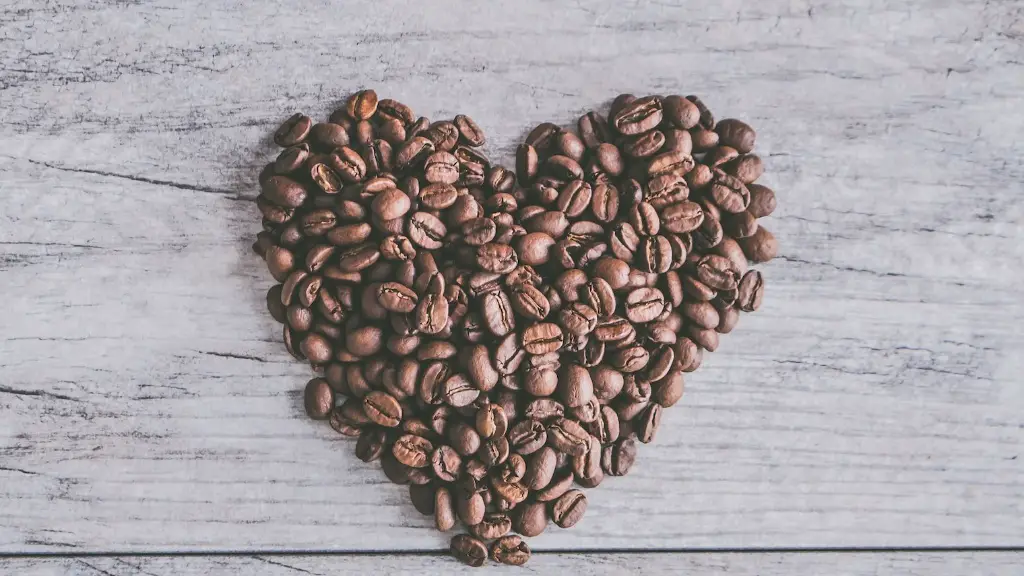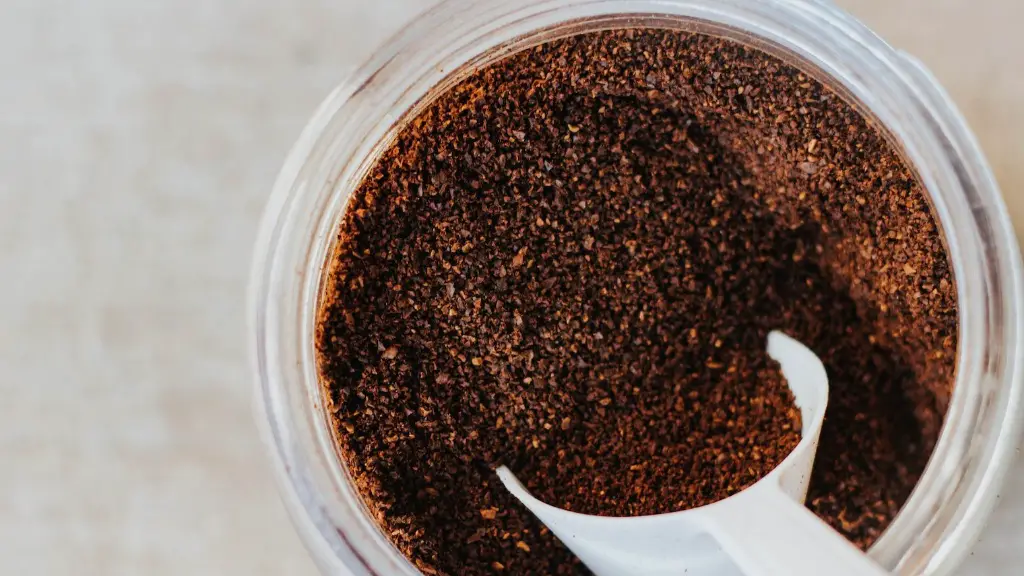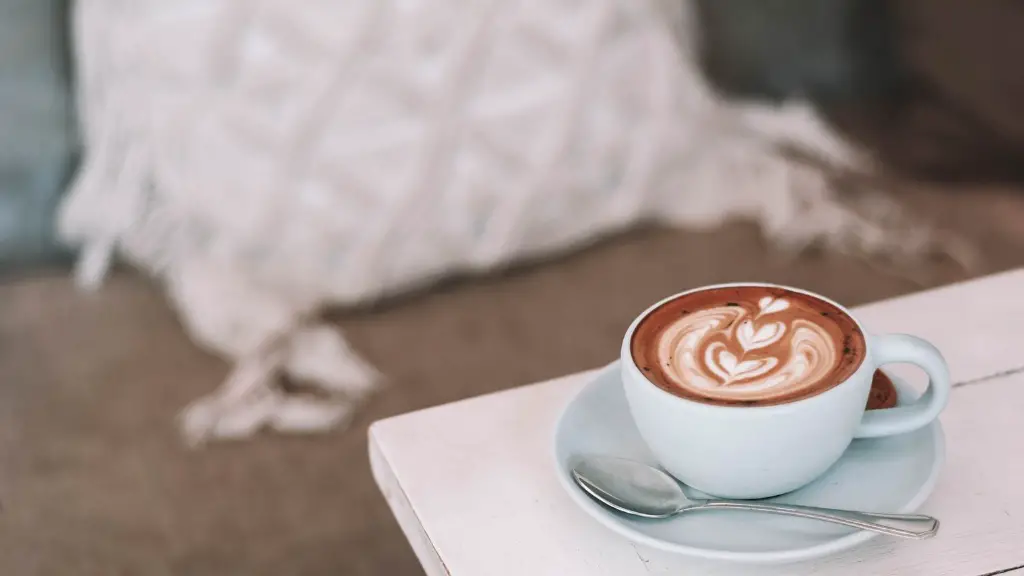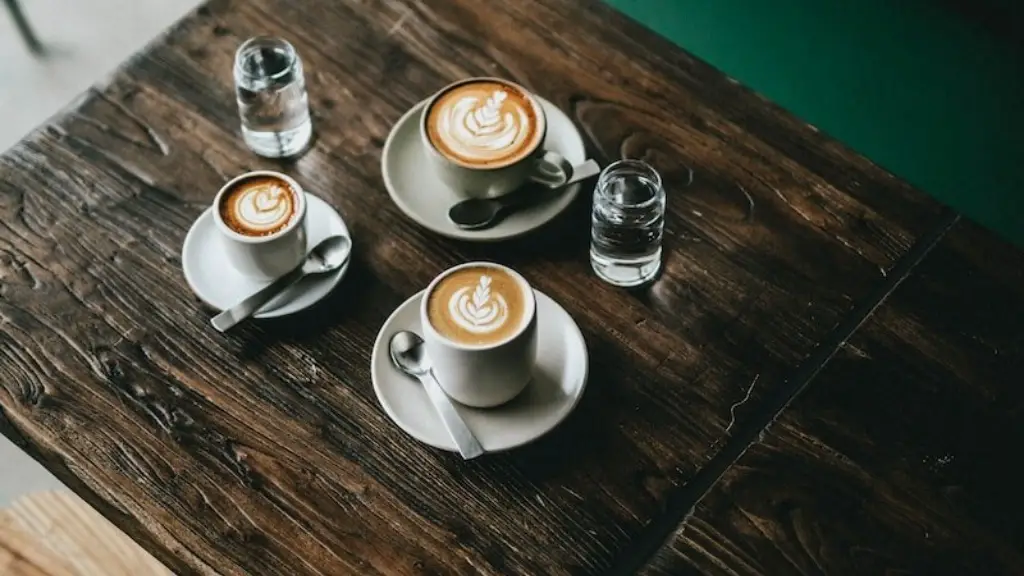Drinks are usually avoided before undergoing a fasting blood draw, but does that include coffee? Generally, coffee and other caffeinated drinks do not affect the fat, protein and glucose levels in the bloodstream. However, it is important to follow the guidelines provided by the doctor or nurse to ensure accurate results when having a fasting blood draw.
According to many health professionals, while caffeine may not alter cholesterol and blood glucose levels, it may have an effect on some of the other blood tests, such as those measuring liver or kidney function. As such, they often advise to avoid or limit coffee and caffeine consumption prior to a blood draw.
As a result, it is important to check the guidelines of the health centre or laboratory where the test will be conducted. Some may advise to refrain from caffeine consumption for a certain period of time (e.g. 12 hours) before the test. On the other hand, others may not advise any fasting or restrictions on coffee consumption. It is important to follow the instructions provided by the workplace.
Nevertheless, some health professionals may even suggest that having little to no caffeine with meals before the test can help to keep the person hydrated and at an optimal level of energy for the appointment. Drinking coffee or other caffeinated beverages may also help with preparing for a long fasting period. For instance, if the test is scheduled after lunch, having a cup of coffee or tea with the meal can give energy and boost concentration so that the person is not tempted by food or drinks during the fasting period.
Although drinking coffee before a fasting blood draw may be permissible and even beneficial in certain scenarios, it could also have an effect on some of the blood tests. Hence why it is important to follow the guidelines provided by the doctor or nurse in charge.
Effects on Specific Tests
In some cases, blood tests require a person to fast or to avoid drinking coffee some hours in advance. For instance, before an oral glucose tolerance test (OGTT), health professionals usually advise not to drink any caffeinated beverages up to 12 hours prior. This test is used to measure the body’s ability to metabolize glucose and for diagnosing diabetes, and drinking coffee may hinder the accurate results needed for the diagnosis.
The same applies for tests like the C-reactive protein test or a basic metabolic panel. A C-reactive protein test is used to detect inflammation levels and a basic metabolic panel can measure levels of electrolytes and other metabolic health markers. In these cases, it is important to avoid caffeinated drinks for at least 8-12 hours in advance.
On the other hand, it is important to note that drinking coffee before a lipid panel, which is used to test cholesterol levels and triglycerides, will usually not affect the results. In addition, a hemoglobin A1C test, which is used to diagnose diabetes and check how well diabetes is being managed, usually does not require any fasting. Therefore, it is alright to drink coffee before this kind of test.
Other Considerations
If the person decides to have a cup of coffee prior to a fasting blood draw, moderation is key. Some health professionals recommend having a maximum of two cups, as having more than that can cause the person to be overstimulated and have difficulty focusing while they are having the blood test.
In addition, it is important to remember that caffeine can increase the heart rate and make people more prone to feeling jittery and anxious. Thus, people with a sensitive cardiovascular system or with prior heart conditions should try and limit the amount of coffee they drink. This can also be beneficial in ensuring the accuracy of the test results and helping the individual stay focused and composed during the procedure.
A cup of coffee before a fasting blood draw can provide the individual with extra energy for the event and it may help them to pass the time more easily. However, it is always important to consult with a healthcare practitioner and make sure to follow their instructions for obtaining the most accurate results of the test.
Calories in Coffee
A cup of black coffee usually does not affect the test results and it contains virtually no calories. On the other hand, caffeinated drinks such as cappuccino, mocha and iced coffee can contain hidden sources of sugar, cream and other additives, which can alter the findings of certain tests. It is important to be aware that these kinds of beverages still require the same abidance in terms of fasting.
Many manufacturers also offer sugar-free options for coffee, tea and other drinks. Usually, these are a much safer option than drinks that contain hidden sources of sugar and calories. Additionally, many of these formulas are also dairy-free, which can aid in reducing the side effects such as nausea, bloating and flatulence.
In any case, if a person decides to have a cup of coffee prior to a fasting blood draw, simplicity is often the best. Having a black coffee with no added ingredients is generally recommended. This can provide the individual with adequate levels of energy and hydration to make it through the procedure.
Caffeine Intake
In general, moderate consumption of caffeinated beverages is considered to be safe and can even have some positive effects. However, people should pay attention to their overall caffeine intake and make sure that it does not exceed the recommended daily allowance.
Generally, the recommended amounts vary from person to person and depend on individual factors such as gender, body mass and health conditions. Other factors like age, eating habits and exercise levels can also influence the necessary intake of coffee. Generally, women are advised to drink no more than 200 to 300 milligrams of caffeine per day, while men should refrain from consuming more than 400 to 500 milligrams per day.
It is important to take into account that some other foods and drinks contain caffeine, such as chocolate, certain soft drinks and even certain medications. As such, reading the labels and keeping track of caffeine intake can be beneficial in avoiding negative effects related to excessive consumption.
Managing Anxiety
Fasting blood draw tests can be daunting and it can be easy to become anxious or overwhelmed prior to or during the procedure. Nonetheless, it is important to remain calm and composed.
A cup of coffee can help in giving extra energy to the person, but it can also increase their anxiety levels. This can be difficult to tackle, so people may also want to consider seeking help from a healthcare professional in order to manage any extra stress associated with the procedure.
There are many ways to address issues related to anxiety, such as mindful meditation, yoga and taking deep breaths. This can help the person to stay composed and in control during the test and to make sure that it is not interfered by any external factors such as stress or caffeine.
Conclusion
Drinking coffee prior to a fasting blood draw can be debated, as it may interfere with the results of the test. As such, it is important to consult with a healthcare professional and follow their advice. Generally, a cup or two of black coffee can be permitted, but it is always important to remember to have caffeine in moderation.





